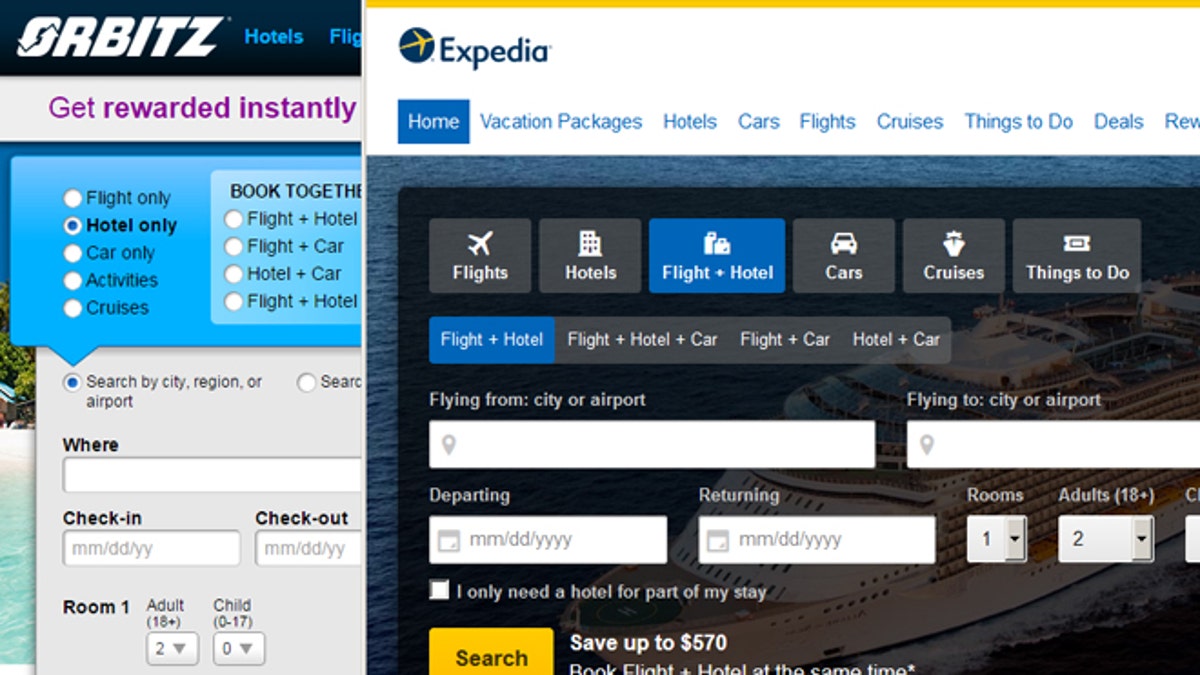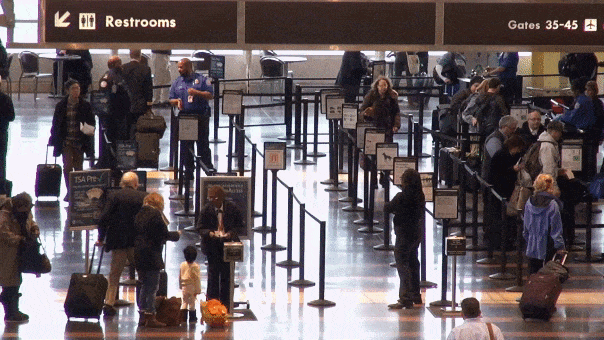
Is travel booking competition over as we know it? (Orbitz.com, Expedia.com)
Remember when there were four huge U.S.-based online travel agencies? Expedia’s back-to-back acquisitions of Travelocity last month and Orbitz this week mean that there are only two players left in the game. Or, more accurately, there still are a dozen or so, but they’re all owned by Expedia or Priceline.
For those keeping track, Expedia now owns Travelocity, Orbitz, Hotels.com, Hotwire, Trivago, CheapTickets and eBookers, among others. Priceline’s stable of online travel agencies (OTAs) now includes Booking.com, Kayak and Agoda.com.
Our research shows that the consumer doesn’t understand naturally which company is owned by someone else.
So who will emerge as winners and losers in the new landscape?
“I don’t think this means much for the consumer at all,” said Jason Clampet, head of content at the travel intelligence company Skift. “It’s been a two-horse race for a while now. Expedia and Priceline are the big two giants in the U.S., but there are still a ton of ways to buy travel.”
Bob Diener, co-founder of Hotels.com and Getaroom.com, which connects travelers to unpublished discounted hotel rates, said it’s important to note that this is an acquisition, not a merger. “From the consumer perspective, I don’t think this acquisition changes that much initially,” he said, “because Expedia will probably operate Orbitz as a separate entity for the foreseeable future — at least for the next year or two and probably longer.
“So this won’t matter to the consumer as long as Expedia keeps the brands operating independently and allows them to compete.”
Besides, there is already a perception among travelers that the big OTAs are not all that different. Behind their various shiny interfaces, they’re all pulling up the same metadata, so they typically serve up the same or similar prices.
That’s a compelling reason to check out a smaller player, said Cheryl Rosner, a former executive at Hotels.com and the co-founder and CEO of Stayful, a site and app that negotiates lower room rates for unsold rooms at boutique and independent hotels.
“Our research shows that the consumer doesn’t understand naturally which company is owned by someone else. But what they see is the same price everywhere, whether the site is owned by Priceline or Expedia,” she said.
“We only use metadata as a starting point for negotiating, so the consumer always knows that there will always be a better price if one can be negotiated.”
Consumers may not care that Expedia has a new arrow in its quiver, but some folks are cheering from the sidelines.
“Clearly the biggest winners are the shareholders,” said Dr. Donna Quadri-Felitti, associate professor of hospitality and tourism at NYU-SCPS Tisch Center. “There can be a lot of back-of-house synergies and savings, and ultimately at the end of the day, whatever savings are in the margins are going to go in the shareholder pockets.”
Priceline is a great example of how this works, Diener said. “It’s a holding company with a lot of different brands, and the brands operate separately. That’s a very smart decision, because Priceline can streamline expenses and public company costs and so forth, but in terms of consumer brands they all operate separately and all have their own metrics.”
Diener and Rosner said the Orbitz acquisition won’t change how they do business at Getaroom and Stayful. But the lopsided David-and-Goliath dynamic means that smaller OTAs “have a tough road to hoe,” said Clampet.
“Getting visibility and discoverability in search if you’re not one of the big OTAs is really difficult,” he said. “Besides Expedia being such a big buyer of Google AdWords, you’re also competing against the airlines and the hotel brands.”
“I think the most significant impact of the acquisition is that suppliers are going to be dealing with fewer players,” said Diener. “That means it’s more important for hotels, vacation rental companies, car rental companies and other companies that contract with OTAs to diversify their sources of distribution. It makes the case even more compelling for suppliers to diversify more and work with companies such as Getaroom.com, because they won’t want to put all of their eggs in one basket.”
“Expedia will have a lot more sway going in with hotels now and saying ‘give us this preferred position,’” said Clampet. “But hotels can still sell their product on their own. It’s not like a milk company that has to rely on a store to sell the milk for them. They can just sell direct to consumers. And a larger brand like a Hilton or a Starwood or a Marriott has other distribution methods. They’re in a better position to negotiate than they have been before, and they’ve also come up with ways to give consumers incentives to book directly with them.”
Has the dust settled on the OTA landscape? Clampet said the fat lady has yet to sing. “I think we’re likely going to see another player come in from the side,” he said. “Maybe Ctrip coming in from China and trying to become bigger in the U.S., or an established retail player like Amazon making a bid into online travel.”
“We have to remember that travel, like every other industry, has its cycles of mergers, start-ups, consolidations and new entries,” said Quadri-Felitti. “This wasn’t unexpected. On the whole, I think this is just an expression of where we are in the cycle, and the impact to the consumer will not be too immediate.”








































